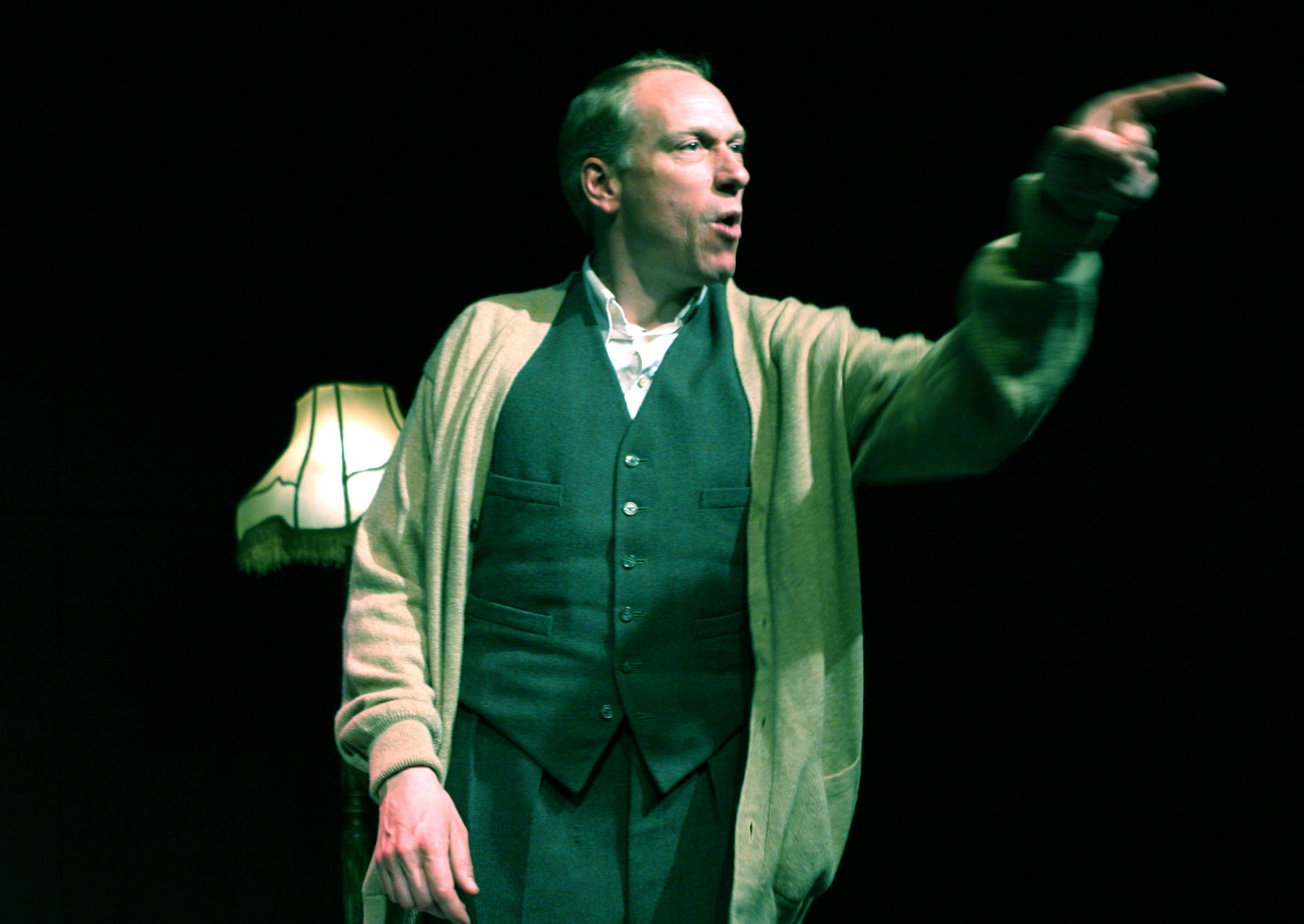As a dramatist of history, you walk a tightrope between telling your story in an interesting way while keeping true to the facts. Actor and playwright Rupert Wickham understands this balancing act well. His play, Defying Hitler, has a second outing at the Unicorn Theatre, alongside his new work Stalin’s Favourite.
Rupert explains his approach: ‘The important role of theatre is to be non-judgemental about the theme. I have to keep my eye on two things – first that the subjects remain intrinsically dramatic. Although the plays are aimed principally at schools they are also opened to conventional audiences so we are not producing ghettoised theatre for the syllabus. At the same time the plays have to tell the history in a more or less correct way. The history is going to be told from a perspective but also with an objectivity and this can be a difficult balance sometimes.
‘It’s a question of applying an instinct for drama and converting prose. What I tend to do is a “filleting process” of all the information I want to get in. I will then put it into a vaguely dramatic form and then I tend to leave it, put it away for a couple of months, read it back and then make it sound as if someone is talking – and that process continues through rehearsals and into performance.’
The idea of performing Defying Hitler grew from a conversation with his niece who was studying the Second World War. Rupert explains: ‘Young people are clued up on facts and figures, for example, how many people Stalin killed, but it is rather more difficult to make a personal connection with those things. It seemed to me that theatre would be a good way into that. History teachers hadn’t necessarily thought of this either.
‘The play was adapted from Sebastian Haffner’s autobiography of the same name and tells the story of when he arrived in England, just as Neville Chamberlain returns from Germany giving his “Peace in Our Time” speech. Haffner knows this is not going to be the end of the story. He is in England, as a German, suspected of being a spy. He has brought his Jewish girlfriend with him because he knows she is in danger. He is totally bound up in that story. What we are doing with the play is getting inside what it’s like to be part of this history and not just to look at it from the outside.’
Stalin’s Favourite is based on Orlando Fige’s book The Whisperers, which tells the story of Stalin through the eyes of Konstantin Simonov, the tyrant’s favourite writer. Rupert says: ‘Simonov was a child of the revolution, born in 1915, two years before the Revolution. He lived through the events as an insider. The idea is to tell the history through him and to tell it in a way that shows clearly how he is emotionally caught up in it and to demonstrate the moral dilemmas.’
Rupert adds: ‘It’s about showing the decision making; people making moral decisions in difficult circumstances and how that throws light on history. The audience is required to put in their bit, to ask, what would I do in that position?’
And therein lies the success of this growing genre that allows audiences to have a personal connection with events that seem very distant – and through this promoting a deeper understanding of the events that shape our world today.
Further viewing
Oh What A Lovely War!: Blackeyed Theatre expertly reprise Joan Littlewood’s classic musical satire until November 26. For details visit www.blackeyedtheare.co.uk.
The Man with the Luggage: Trestle Theatre Company’s production of Eugene Ionesco’s work about the impact of war on the individual. For details see www.trestle.org.uk.
For reviews of both productions, please visit www.inkpellet.co.uk
Defying Hitler will be performed at the Unicorn Theatre on January 11-13 and Stalin’s Favourite will show on January 18-20. National tour dates can be found at www.theatreunlimited.org.



